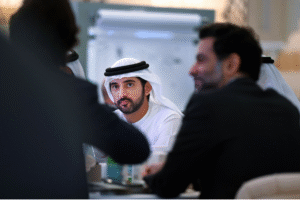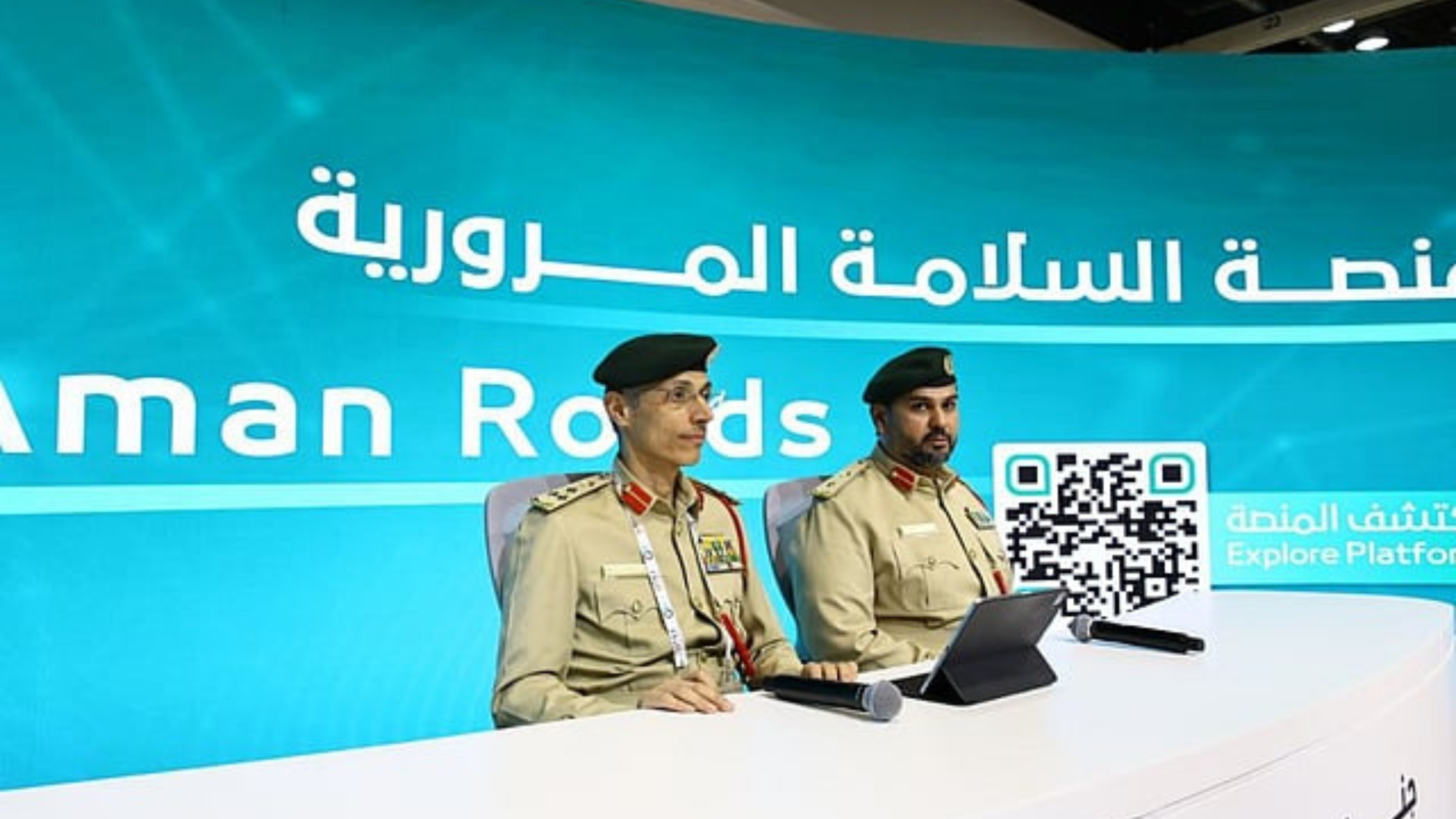Dubai Launches In-Country Value Programme for Local Industry

Dubai has unveiled a major strategic initiative aimed at strengthening its local manufacturing sector and driving forward its long-term economic ambitions. The new programme, titled the ‘Dubai In-Country Value (ICV) Programme’, was officially launched by the Dubai Department of Economy and Tourism (DET) in collaboration with the Dubai Department of Finance (DOF). It represents a significant step toward achieving the objectives of the Dubai Economic Agenda D33, which seeks to double the emirate’s economy by the year 2033.
This forward-looking programme is designed to redirect government spending toward local suppliers, ensuring that domestic manufacturers and Emirati-owned businesses benefit more directly from public sector procurement. The Dubai ICV Programme not only reflects a shift in economic policy but also reaffirms Dubai’s commitment to building a more resilient, inclusive, and self-sufficient economy.
Tasharok Platform Enables Strategic Procurement Efficiencies
Central to the implementation of the ICV initiative is Tasharok, the Government of Dubai’s Shared Procurement Programme. Tasharok is managed by the Support Services Centre (SSC) at Dubai Finance and provides government entities with access to pre-approved suppliers offering preferential rates. Through this platform, procurement processes are streamlined, ensuring transparency, consistency, and cost-effectiveness.
The Tasharok platform covers 42 general product categories, ranging from office supplies to medical consumables. With the new enhancements, it will continue operating under a hybrid model involving seven lead government entities. These include Dubai Municipality, Dubai Health, Dubai Police, the Roads and Transport Authority (RTA), Dubai Customs, the Dubai Electricity and Water Authority (DEWA), and Dubai Airports. Each of these entities will integrate ICV principles into their procurement strategies and work with approved suppliers through established framework agreements.
This unified approach ensures that all participating government entities align their purchasing activities with the strategic goals of the ICV programme. By giving priority to suppliers who demonstrate strong local capabilities and contribute to the emirate’s economy, the programme aims to boost domestic production and generate more opportunities for local firms.
Programme Supports Dubai Economic Agenda D33 Vision
The launch of the Dubai ICV Programme is part of a broader strategy to transform the emirate into a global centre for trade, investment, and innovation. One of the key objectives of the D33 Agenda is to promote sustainable economic growth and increase the GDP by building a strong, diversified economy. By directing more government procurement to local suppliers, the programme helps retain more of the public budget within Dubai’s economy, enhancing the GDP while also strengthening supply chain resilience.
Through this approach, the ICV initiative will promote greater self-reliance, reduce dependence on foreign imports, and create a supportive environment for small and medium-sized enterprises (SMEs) and Emirati business owners. In addition, it encourages the employment of local talent, giving Dubai-based businesses a competitive advantage in the public procurement process.
The ICV programme also aligns with Dubai’s strategic vision of becoming a destination for high-value production and innovation. By promoting local manufacturing and encouraging innovation among suppliers, the initiative helps position Dubai as a leader in advanced industry and technology.
Unified Government Procurement Powers Economic Transformation
Hadi Badri, CEO of the Dubai Economic Development Corporation (DEDC), the economic development arm of DET, highlighted the significance of the new programme. He stated that the Dubai ICV Programme represents a strategic shift in how government procurement is conducted, in line with the broader goals of the D33 Agenda.
According to Badri, the collaborative efforts between the Department of Finance and the Tasharok lead buyers are a testament to the potential of unified government procurement. By consolidating procurement under a shared strategy, the government can provide increased support to local manufacturers and SMEs. This, in turn, enables these businesses to scale up their operations in a purposeful and sustainable manner.
Badri emphasized that a focus on in-country value not only improves supply chain resilience but also enhances Dubai’s global competitiveness. As a result, Dubai is building a more agile, innovation-driven economy that is ready to meet the demands of the future.
Support for Local Industries and Long-Term Sustainability
The economic benefits of the Dubai ICV Programme are also supported by the DOF’s Shared Services Sector, which plays a vital role in facilitating public procurement across government entities. Hamed Al Awadhi, Executive Director of the Shared Services Sector at Dubai Finance, underscored the importance of directing government expenditure toward the local manufacturing sector.
Al Awadhi explained that this strategy forms a crucial foundation for building competitive industries within the emirate and supports Dubai’s wider economic vision. By investing in the capabilities of local businesses and manufacturers, the initiative helps ensure long-term sustainability and economic excellence.
In addition to supporting economic diversification, the ICV initiative contributes to more efficient procurement processes. With the availability of preferential pricing through the Tasharok platform, government entities are empowered to make cost-effective decisions while also contributing to the growth of the local economy.
Promoting Emirati-Owned Businesses and Local Talent Development
One of the central aims of the Dubai ICV Programme is to ensure that government entities prioritize suppliers with strong local capabilities. These include not only Dubai-based manufacturers but also Emirati-owned businesses and firms that employ local talent and operate within the emirate’s borders.
By giving preference to such suppliers, the programme incentivizes companies to invest in local operations, enhance their workforce with local talent, and increase the domestic content of their products. This approach leads to a more inclusive and equitable business environment, where local firms are given the opportunity to thrive and contribute to the emirate’s economic success.
Incorporating the ICV framework into the Tasharok platform allows for seamless integration and easy access for lead buyers and participating government bodies. This ensures that procurement processes are aligned with Dubai’s economic goals, fostering collaboration and delivering measurable outcomes.

Capacity Building Through Training and Technical Support
To guarantee the effective rollout of the Dubai ICV Programme, DET and DOF have taken a proactive approach to capacity building. A series of specialised workshops have been organised to train lead buyers on how to apply ICV criteria in their procurement decisions.
These workshops provide detailed guidance on assessing local manufacturing content, integrating ICV benchmarks into sourcing strategies, and evaluating the economic impact of procurement activities. By equipping government officials with the necessary knowledge and tools, the initiative ensures a consistent and impactful implementation of ICV principles.
The training also reinforces the programme’s emphasis on accountability and measurable progress. By tracking the contribution of each supplier to Dubai’s economy, government entities can make more informed procurement decisions and monitor the effectiveness of the initiative.
A Long-Term Vision for Dubai’s Industrial Landscape
The Dubai ICV Programme is more than a procurement reform—it is a transformative economic strategy with long-term implications. By shifting focus toward local suppliers and emphasizing economic self-sufficiency, the initiative lays the groundwork for a new era of industrial development in the emirate.
Dubai is already known as a global hub for trade and logistics, but the ICV programme positions it to become equally prominent in manufacturing and production. Encouraging innovation, increasing demand for locally made goods, and developing a skilled local workforce are all part of this broader vision.
In a rapidly evolving global economic landscape, the ICV initiative provides Dubai with a competitive edge. It enables the emirate to respond effectively to supply chain disruptions, global trade shifts, and technological change, ensuring continued prosperity in the decades to come.
Building a Resilient and Inclusive Economic Future
Dubai’s launch of the In-Country Value Programme is a landmark moment in its journey toward economic resilience, diversification, and inclusivity. It represents a coordinated, government-wide effort to support local manufacturers, empower Emirati-owned businesses, and strengthen domestic supply chains.
Through the integration of the ICV framework into the Tasharok procurement platform, the initiative ensures that public spending directly benefits Dubai’s economy. It supports the goals of the D33 Agenda, driving sustainable growth and preparing the emirate for future challenges and opportunities.
By placing local value at the heart of procurement, Dubai reinforces its position as a forward-thinking, business-friendly city with a commitment to excellence, innovation, and long-term development.







